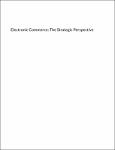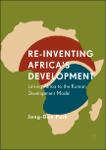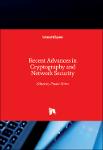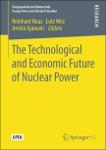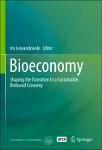Tìm kiếm
Tác giả
- Jorgensen, Ed (3)
- McFadyen, Ron (3)
- Gittell, Ross (2)
- Köhn, Doris (2)
- Sau >
Chủ đề
- kinh tế (16)
- Economics (9)
- programming (8)
- Management science (7)
- Sau >
Năm xuất bản
Kết quả tìm kiếm
Introduction about Computer Science is about problem solving, Computing Basics. Basics, conditionals, loops, functions, erros handling, Arrays, Collections & Dynamic Memory, strings, file input/output. The PHP Programming Language |
This book is written both for practitioners and business students. Managers wishing to understand how electronic commerce is revolutionizing business will find that our comprehensive coverage of essential business issues (e.g., pricing and distribution) answers many of their questions. Advanced business students (junior, seniors, and graduate students) will find that the blend of academic structure and practical examples provides an engaging formula for learning.
The book’s title reflects some key themes that we develop. First, we are primarily concerned with electronic commerce, which we define as using technology (e.g., the Internet) to communicate or transact with stakeholders (e.g., customers). Second, we discuss how organizations must change in order to take advantage of ele... |
This book introduces a novel approach to the design and operation of large ICT systems. It views the technical solutions and their stakeholders as complex adaptive systems and argues that traditional risk analyses cannot predict all future incidents with major impacts. To avoid unacceptable events, it is necessary to establish and operate anti-fragile ICT systems that limit the impact of all incidents, and which learn from small-impact incidents how to function increasingly well in changing environments.
The book applies four design principles and one operational principle to achieve anti-fragility for different classes of incidents. It discusses how systems can achieve high availability, prevent malware epidemics, and detect anomalies. Analyses of Netflix’s media streaming solut... |
This open access book analyses the development problems of sub-Sahara Africa (SSA) from the eyes of a Korean diplomat with knowledge of the economic growth Korea has experienced in recent decades. The author argues that Africa's development challenges are not due to a lack of resources but a lack of management, presenting an alternative to the traditional view that Africa's problems are caused by a lack of leadership. In exploring an approach based on mind-set and nation-building, rather than unity – which tends to promote individual or party interests rather than the broader country or national interests – the author suggests new solutions for SSA's economic growth, inspired by Korea's successful economic growth model much of which is focused on industrialisation. This book will be... |
Introductory Chapter: Recent Advances in Cryptography and Network Security, Chapter 2: A New Approximation Method for Constant Weight Coding and Its Hardware Implementation. Chapter 3: Protocol for Multiple Black Hole Attack Avoidance in Mobile Ad Hoc Networks. Chapter 4: A Survey of Machine Learning Techniques for Behavioral-Based Biometric User Authentication. |
This open access book presents a systematic investigation into internationally comparable data gathered in ICILS 2013. It identifies differences in female and male students’ use of, perceptions about, and proficiency in using computer technologies. Teachers’ use of computers, and their perceptions regarding the benefits of computer use in education, are also analyzed by gender.
When computer technology was first introduced in schools, there was a prevailing belief that information and communication technologies were ‘boys’ toys’; boys were assumed to have more positive attitudes toward using computer technologies. As computer technologies have become more established throughout societies, gender gaps in students’ computer and information literacy appear to be closing, although st... |
This open access book discusses the eroding economics of nuclear power for electricity generation as well as technical, legal, and political acceptance issues. The use of nuclear power for electricity generation is still a heavily disputed issue. Aside from technical risks, safety issues, and the unsolved problem of nuclear waste disposal, the economic performance is currently a major barrier. In recent years, the costs have skyrocketed especially in the European countries and North America. At the same time, the costs of alternatives such as photovoltaics and wind power have significantly decreased. |
Intercultural learning: Critical preparation for international student travel aims to take students beyond practical preparation, to equip them with a critical lens through which to view and understand their international experiences. The book leads students toward a deeper understanding of culture and cultural difference through an exploration of challenging concepts such as imperialism, racism, privilege and intercultural practice.
As an adjunct to traditional approaches, the book adds a significant and valuable dimension to the process of preparing students for international study, increasing the potential for meaningful and transformative learning experiences. |
This book defines the new field of "Bioeconomy" as the sustainable and innovative use of biomass and biological knowledge to provide food, feed, industrial products, bioenergy and ecological services. The chapters highlight the importance of bioeconomy-related concepts in public, scientific, and political discourse. Using an interdisciplinary approach, the authors outline the dimensions of the bioeconomy as a means of achieving sustainability. |
The book is supported by discussion of relevant theory and research in cultural sociology. Beyond Race: Cultural Influences on Human Social Life has stressed learner-centered teaching with the instructor taking on the role of a facilitator of learning. As such, it is expected the instructor will serve as the mediator between the content of this book and learners’ understanding of material on multiple and higher levels. This book does not offer a set of rules in teaching cultural sociology, but rather suggests content and applications to consider and modify as needed by the ever-changing dynamics of instructors and learners. |


